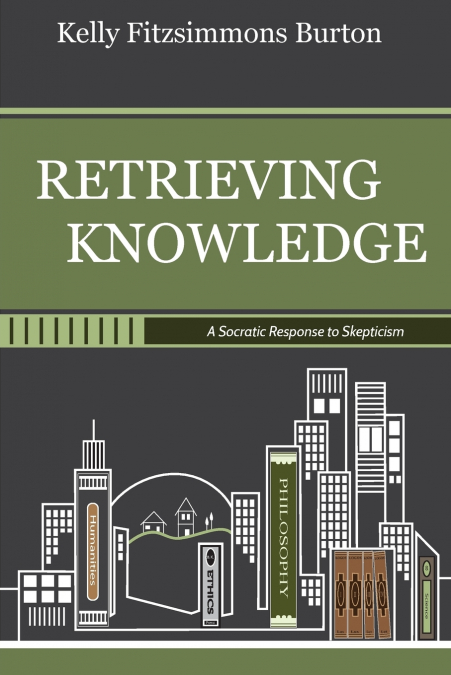
Kelly Fitzsimmons Burton
Retrieving Knowledge: A Socratic Response to Skepticism is an exercise in retrieval philosophy, using philosophical principles from the past to address contemporary challenges. The book begins with first philosophy’s search for a logos, a source of explanation of the order and rationality in the world, and the failure to ground the logos in being. The story picks up with the skepticism of the Sophists and Socrates’ attempt to address the epistemological and metaphysical sources of the skepticism of his day in Plato’s dialogue Theaetetus. Through this dialogue, we come to grapple with the definition of knowledge and the problems inherent with first philosophy’s materialism. Knowledge is defined as a true belief with a logos (or an account). The theme of the logos is continued from first philosophy to Socrates and then to the Modern period of philosophy where we encounter a similar skepticism that Socrates addresses, a skepticism arising from metaphysical naturalism and empiricism. The moderate naturalism and empiricism of the Modern philosophers become the radical naturalism and empiricism of Nietzsche and the post-Nietzschean philosophers. The radical naturalism and empiricism of the post-Nietzschean philosophers lead to a contemporary negative nihilism carried out by the continental postmodernists, and a positive nihilism carried out by the Pragmatists and the “willing out beyond” of new values after Nietzsche’s transvaluation of all values. Retrieval of the arguments of Socrates from the Theaetetus is used to address contemporary skepticism in the same way that Socrates addressed the skepticism of his day. Post-Nietzschean philosophy poses challenges beyond what Socrates faced; thus, a new direction for the future of philosophy is needed. The epilogue provides a blueprint for how the original search for the logos as the heart of philosophy may continue today.